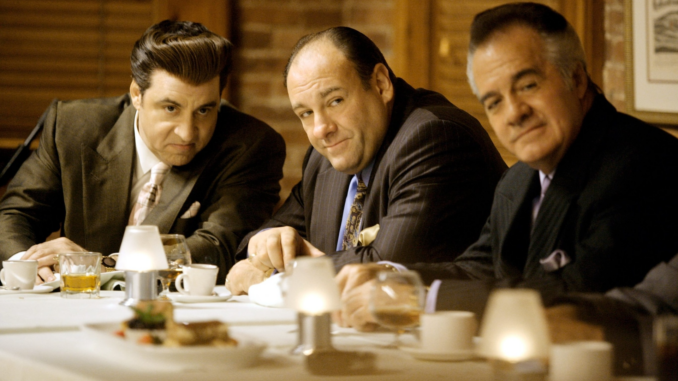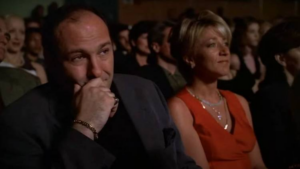
Introduction: How Lost and The Sopranos Changed TV Forever
When The Sopranos aired in 1999, it set the stage for a new era of television. By blending high-quality storytelling with complex characters, it proved that TV could be as engaging as film. Fast forward to five years later, and Lost came along, breaking TV conventions and continuing to shape the landscape of modern series. But how exactly did Lost build on the foundations laid by The Sopranos, and why is it considered one of the most important TV shows of all time?
In this article, we’ll explore how Lost became the defining show of the 2000s, breaking the mold and pushing boundaries in ways that made it one of the most influential TV shows in history. We’ll analyze how it helped kickstart a golden age of television and paved the way for series like Breaking Bad, Game of Thrones, and Westworld.
The Sopranos: A New Era of Television
The Sopranos wasn’t just a show about mobsters; it was an exploration of the human psyche, family dynamics, and the American dream. In a world dominated by formulaic sitcoms and traditional TV dramas, David Chase created a show that was darker, more sophisticated, and often more nuanced than anything viewers had seen before. Here’s what made The Sopranos stand out:

1. Complex Characters and Antiheroes
Tony Soprano wasn’t your average television protagonist. He was a flawed antihero, struggling with his personal demons while trying to balance his criminal empire with his family life. Viewers were invited to empathize with his character, despite his many moral failings. This departure from the stereotypical “good guy vs. bad guy” narrative created a template for later shows.
2. Long-Form Storytelling
The Sopranos didn’t just tell episodic stories; it had an overarching narrative that spanned multiple seasons. This deep, serialized storytelling allowed characters to evolve over time, offering a much richer viewing experience. This style of storytelling became a hallmark of modern TV.
3. Cinematic Production Values
With its high production quality, The Sopranos brought cinematic techniques to the small screen. The show’s use of visual imagery, soundtrack, and careful pacing created a sense of realism and depth that made the experience feel more like a film.
The Arrival of Lost: Breaking TV Norms
Five years after The Sopranos revolutionized TV, Lost came along and upped the ante. Produced by J.J. Abrams, Damon Lindelof, and Jeffrey Lieber, Lost was a show that blended mystery, science fiction, and drama in ways that had never been seen before.
1. Nonlinear Storytelling and Flashbacks
One of the key techniques Lost borrowed from The Sopranos was its nonlinear narrative. The show often relied on flashbacks to reveal key moments from the past lives of the characters. While The Sopranos used these devices in a more grounded, real-world context, Lost took it to a whole new level by incorporating time travel, parallel universes, and other supernatural elements.
2. Ensemble Cast and Character Development
Much like The Sopranos, Lost featured a large ensemble cast of complex characters. From Jack to Kate to Sawyer, every character had their own arc, motivations, and secrets. But unlike traditional ensemble dramas, Lost took the time to develop these characters, revealing hidden depths over time. This allowed audiences to form emotional attachments to each character, which made the stakes higher as the show progressed.
3. The Mysterious and Philosophical Tone
Lost wasn’t just a survival show—it was also deeply philosophical. Themes of fate, free will, and the afterlife were woven into the narrative, inviting viewers to ponder life’s biggest questions. This existential approach to storytelling was a marked departure from traditional TV tropes, making Lost feel more like an event rather than just a show.
How Lost Shaped Modern TV: Key Trends
1. Emphasis on Mystery and Puzzles
Perhaps one of the most significant shifts Lost introduced was the importance of mystery in television storytelling. The show didn’t just focus on character drama; it also kept viewers hooked with its intricate mysteries. The mysterious island, the black smoke monster, and the various puzzles kept audiences coming back for more. This emphasis on long-term, slowly unfolding mysteries set the standard for many of the TV shows that followed.
2. The Shift Toward Serialized Storytelling
While The Sopranos laid the groundwork for serialized TV, Lost fully embraced this storytelling model. The show featured cliffhangers, long-running plots, and character arcs that spanned seasons. This format encouraged viewers to watch every episode in order, and it made binge-watching a cultural phenomenon long before streaming platforms made it mainstream.
3. Blending Genres and Experimenting with Structure
Lost blurred the lines between genres, combining elements of drama, action, horror, science fiction, and even fantasy. This genre-hopping was a trend that many other successful shows followed, from Stranger Things to Westworld. Additionally, Lost experimented with narrative structure, often relying on dreamlike sequences, flash-forwards, and parallel storylines. This unconventional approach gave rise to new possibilities for storytelling in television.
4. Fan Engagement and Online Communities
The mystery of Lost wasn’t confined to the show itself—it spilled over into online communities. Fans would dissect episodes, share theories, and discuss the show’s meaning on forums and social media platforms. This level of engagement helped transform TV viewing into a communal, interactive experience.
5. The Rise of “Event Television”
Before Lost, most TV shows were episodic and didn’t require constant viewer attention. Lost changed that by making every episode feel like an event. The mystery and complexity of the show demanded that viewers watch every episode, creating a sense of urgency around it. This trend paved the way for other shows that became “water cooler” events, where people would gather to discuss the latest episode.
Post-Lost TV: The Legacy of the Show
Lost may have ended in 2010, but its impact on TV can still be felt today. The show’s influence is clear in the complex narratives of modern dramas, from the morally gray characters of Breaking Bad to the narrative experimentation in Westworld.
1. The Rise of Antiheroes and Complex Characters
Like The Sopranos, Lost contributed to the rise of the antihero in TV. Characters like Jack, Sawyer, and Locke were deeply flawed, but they were also incredibly compelling. This paved the way for future characters like Walter White in Breaking Bad and Tony Soprano himself.
2. The Continued Evolution of Genre-Bending Shows
Lost helped popularize genre-bending shows that mix elements of horror, mystery, and science fiction with character-driven drama. Shows like Stranger Things, Dark, and The OA continue to build on the foundation that Lost established.
3. The Birth of the “Binge-Watching” Era
While streaming platforms like Netflix helped accelerate binge-watching, Lost was one of the first shows to create a sense of urgency around watching an entire season in one go. The interconnected storylines and cliffhangers made it almost impossible to stop watching, a trend that has only grown in the age of streaming.
Conclusion: Lost’s Lasting Impact on TV
Five years after The Sopranos redefined television, Lost broke new ground by blending serialized storytelling with deep philosophical themes, intricate mysteries, and genre experimentation. The show’s legacy is seen in nearly every successful drama since its air, from the rise of complex, morally ambiguous characters to the phenomenon of binge-watching. Today, it stands as one of the most important milestones in the evolution of modern television.
FAQs
1. Did Lost influence other TV shows?
Yes, Lost had a massive impact on later shows like Breaking Bad, Stranger Things, and Westworld, all of which incorporated complex characters, mysteries, and genre-blending elements.
2. Why was Lost so popular?
The show combined engaging characters, intricate storytelling, and mind-bending mysteries, keeping viewers hooked from episode to episode. It was also one of the first shows to build an active online fan community.
3. What made Lost different from other shows at the time?
Lost stood out because of its nonlinear storytelling, focus on character development, and its blending of genres like science fiction, drama, and mystery. It also pioneered the concept of “event television” where each episode felt like a must-see experience.
4. How did Lost impact the TV industry?
Lost helped solidify serialized storytelling as the dominant model for TV dramas. It also encouraged shows to push the boundaries of traditional genres and explore complex, philosophical themes.